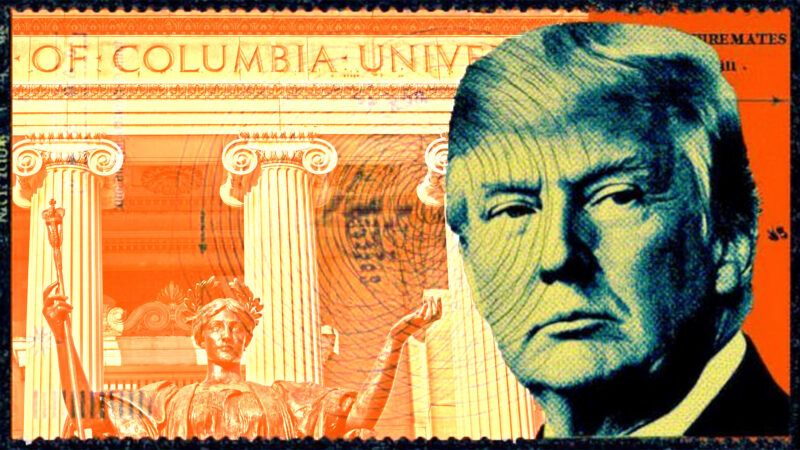Columbia's $200 Million Deal Will Placate Trump—for Now
To reinstitute $400 million in federal funding, the university agreed to implement plans to combat antisemitism and to appoint an independent monitor to oversee changes.

Columbia University on Wednesday agreed to pay a $200 million fine over a three-year period in a settlement over the Trump administration's antisemitism allegations. After months of tension, the deal will restore the majority of the $400 million in federal research funding the president canceled earlier this year and keep future government funding intact.
In exchange for reinstituting the federal grants, Columbia has agreed "to follow laws banning the consideration of race in admissions and hiring, and follow through on other commitments to reduce antisemitism and unrest on campus," reported The New York Times. A jointly selected independent monitor will oversee the implementation of the university's plans to combat antisemitism. And federal investigations into alleged civil rights violations against Jewish employees will also be settled for an additional $21 million.
"The Trump Administration's deal with Columbia University is a seismic shift in our nation's fight to hold institutions that accept American taxpayer dollars accountable for antisemitic discrimination and harassment," Education Secretary Linda McMahon said in a statement. The reforms, McMahon believes, will serve as a "roadmap for elite universities" and "will ripple across the higher education sector," insinuating that other negotiations—like the high-profile feud between the Trump administration and Harvard University—could reach a similar conclusion.
"The settlement was carefully crafted to protect the values that define [Columbia]," said Acting University President Claire Shipman in a press release, "and allow our essential research partnership with the federal government to get back on track. Importantly, [the agreement] safeguards our independence, a critical condition for academic excellence and scholarly exploration, work that is vital to the public interest."
Columbia is the first university to reach a deal with the Trump administration following President Donald Trump's January executive order to combat antisemitism. In March, Trump canceled $400 million in federal funding to the university after demanding changes to protest policies, security practices, and the Middle East studies department. Columbia initially agreed to the requirements, but negotiations continued after Trump pressured the university to accept a consent decree that would have appointed a federal judge to oversee policy changes.
Leading up to the final settlement, the Trump administration increased pressure on Columbia to accept a deal by threatening the school's accreditation—for which the university is currently being reevaluated—after a three-month-long investigation found that Columbia "acted with deliberate indifference towards the harassment of Jewish students" and, therefore, was in violation of Title VI of the Civil Rights Act of 1964.
The Trump administration might be placated by the university's agreement for now, but any deal with the president comes with inherent risk. In contrast to Harvard—which chose to sue over $2.6 billion in frozen federal funding—Columbia chose to negotiate to protect an additional $1.3 billion in annual federal research grants. And while the university's statement reiterates that the settlement does not compromise independence or academic freedom, future and ongoing government entanglement seems likely, given that the university agreed to regular check-ins to evaluate continued compliance with "federal laws and regulations pertaining to admissions, hiring, and international students."
Although Columbia and Harvard have taken disparate approaches to the Trump administration's assault, both universities would be wise to disown the notion that partnership with and funding from the federal government is essential. To truly protect academic autonomy and freedom of thought, Columbia should avoid federal grants and find other means to fund its important work.


Show Comments (30)